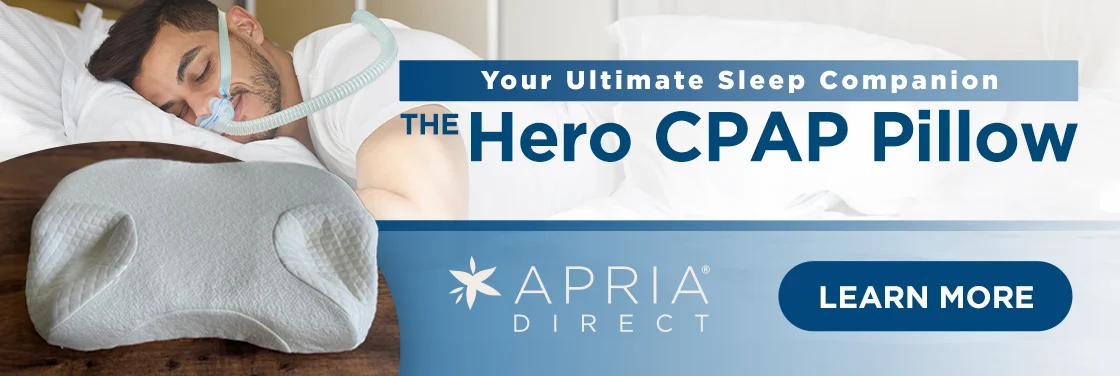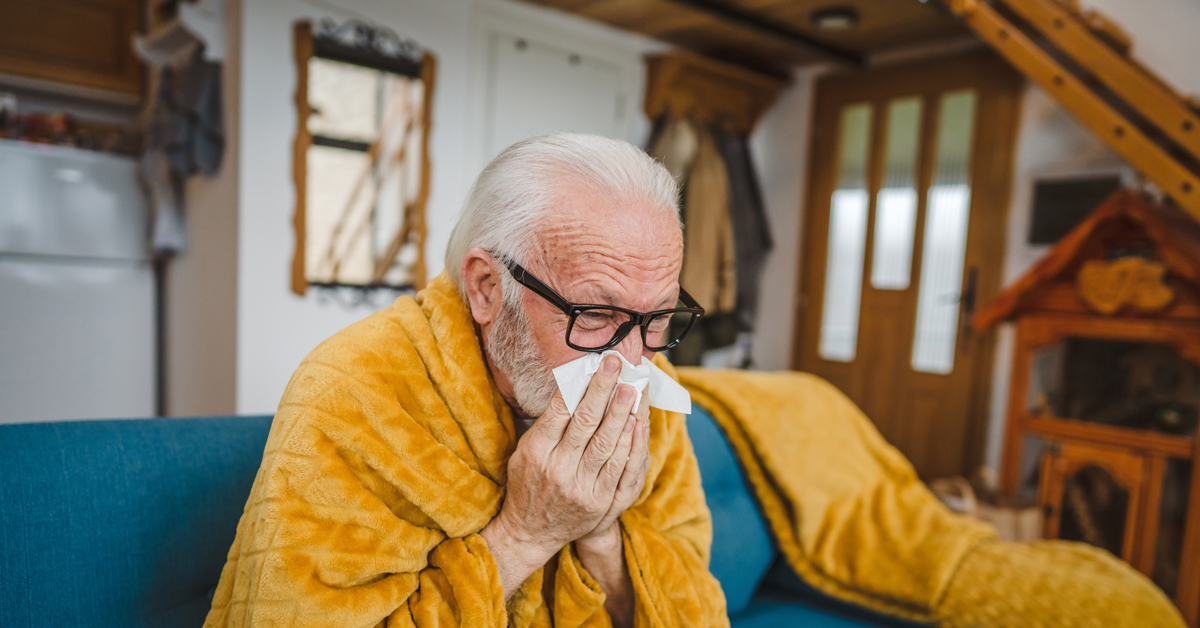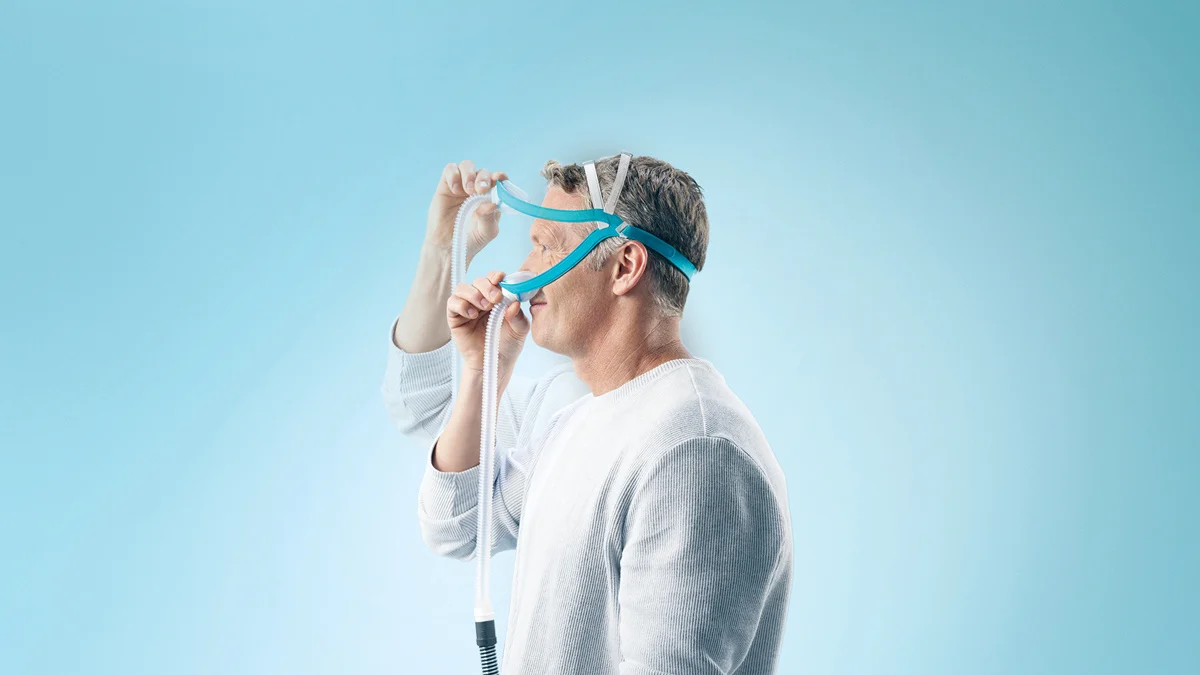Sleeping on Your Stomach Poses Challenges for People With Sleep Apnea. Here’s How to Use Your CPAP Device Successfully.
Most healthcare professionals recommend that people with sleep apnea sleep on their side. The reason: side sleeping prevents gravity from interfering with your airways, which helps reduce breathing disruptions and snoring.
Many side sleepers use their CPAP (continuous positive airway pressure) machine to effectively treat their sleep apnea.
But what about people who sleep on their stomachs? Can they use a CPAP machine?
Absolutely! Although sleeping on your stomach is one of the rarest sleep positions—only about 7% of people are stomach sleepers—you can still successfully use a CPAP machine to help you get a good night’s rest.
The secret: finding the best mask! And that’s important. Studies show that up to 50% of people don’t comply with their CPAP therapy, often because their mask doesn’t fit properly.
Left untreated, sleep apnea can lead to such serious health conditions as heart disease, stroke, diabetes, and obesity.
The Benefits of Stomach Sleeping
- Studies reveal that stomach sleeping helps improve oxygen saturation (the amount of oxygen in your blood) and reduce your AHI (apnea-hypopnea index), which is used to measure the severity of your sleep apnea
- Stomach sleeping decreases the chance of the soft tissues in your mouth and throat from blocking airflow
- Researchers believe that stomach sleeping may improve central sleep apnea, which occurs when your brain temporarily stops sending signals to the muscles that control breathing while you sleep
The Challenges of Stomach Sleeping
- Sleeping on your stomach usually means your face is pressed against your pillow, which can lead to CPAP air leaks and mask displacement
- A large or bulky mask may be uncomfortable and result in skin irritation and neck pain or strain
Masks with frontal tubing may become disconnected as you sleep
The 3 Most Common Masks
CPAP masks come in many combinations, but there are basically three types:
- Full-face masks (also called oronasal masks) cover your mouth and nose and are held in place with head straps. They’re bulkier than other masks but appropriate for people who breathe through their mouth or need a higher air pressure setting on their CPAP device
- Nasal masks fit over your nose, are lighter than full-face masks, and are secured by a strap that goes around your head
- Nasal pillow masks are even lighter and smaller than nasal masks
So What Is the Best Mask For Stomach Sleepers
Nasal pillow masks are the most appropriate option for people who sleep on their stomachs. Here’s why:
- Small, light, and low-profile for minimum face contact and maximum comfort
- Less likely to cause pain or become dislodged as you sleep
- Includes a soft, silicone cushion with tips inserted into your nostrils to create a secure seal while delivering air pressure
- Because they don’t obstruct your face, nasal pillow masks are also suitable for people who are claustrophobic, who read or watch TV before bed, wear glasses, or have facial hair
Before using a nasal pillow mask, ensure that your pillow can accommodate it. Avoid nasal pillow masks with tubes that run alongside your temples, which can restrict airflow depending on your pillow’s firmness.
If you are a mouth breather or not used to breathing out of your nose but prefer to use a nasal pillow mask, a chin strap helps keep your mouth closed as you sleep. This option also helps reduce the side effects of mouth breathing, such as sore throat, tooth decay, and mouth dryness.
Also, nasal pillow masks may not be the best choice for those who need higher air pressure since direct airflow into nasal passages may be uncomfortable, resulting in nasal dryness or nosebleeds.
What Is the Best Mask For Stomach Sleepers Who Are Mouth Breathers?
If you breathe out of your mouth or are not used to breathing out of your nose, a nasal pillow mask is not the ideal choice.
Instead, your doctor may recommend a full-face mask that connects to your CPAP machine with top-of-the-head tubing. This will allow you to sleep on your stomach without having the tubing pressing into your face or being dislodged by your pillow. Also, choose a full-face mask with a sleek, low-profile design, which may result in greater comfort.
Add Comfort With a CPAP Pillow
CPAP pillows are specially designed with cutouts that accommodate your mask and tubing to ensure a better fit. CPAP pillows let you move more freely as you sleep while maintaining a firm seal to prevent CPAP air leaks. And they provide support for your cervical spine.
Belly Up to Stomach Sleeping
Work with your doctor to choose the nasal pillow mask or other mask that’s best suited to sleeping on your stomach.
For more information: CPAP Masks for Different Sleeping Positions
As a leader in the field of sleep apnea, Apria has assembled a team of Sleep Coaches who work closely with you and your doctor to help select the right CPAP device and accessories for your specific needs—based on your sleeping position and the way you breathe.
Our goal is to ensure you stick with your sleep apnea therapy—and get the quantity of sleep you need to enhance your quality of life.
References
1. Summer, J. (Updated 2023, March 10). How to Choose a CPAP Mask Based On Your Sleep Position. Sleep Foundation. https://www.sleepfoundation.org/cpap/choosing-cpap-mask-for-your-sleep-position.
2. Edwards, M. (Updated 2023, September 1). How to Choose a CPAP Mask Based On Your Sleep Position. SleepApnea.org. https://www.sleepapnea.org/cpap/choosing-cpap-mask-for-your-sleep-position/.
3. (2023, March 3). Slide show: Which CPAP masks are best for you? Mayo Clinic. https://www.mayoclinic.org/diseases-conditions/sleep-apnea/multimedia/cpap-masks/sls-20076986.
4. Brooks, R. (2022, November 17). Which CPAP Mask is Best for Your Patient? Pros & Cons of Various Mask Types. The Sleep Scene. https://thesleepscene.aastweb.org/Blog/cpap-masks-options-full-face-nasal-and-nasal-pillows.
LEGAL DISCLAIMER: Material in this newsletter is provided for general health education and informational purposes and to provide references to other resources only; it may not apply to you as an individual. While Apria Healthcare believes that the information provided through this communication is accurate and reliable, Apria Healthcare cannot and does not make any such guarantee. It is not intended to be a replacement for professional medical advice, evaluation, diagnosis, services or treatment (collectively, “medical treatment”). Please see your healthcare provider for medical treatment related to you and your specific health condition(s). Never disregard medical advice or delay seeking medical care because of something you have read on or accessed through this website. Reading this newsletter should not be construed to mean that you have a healthcare provider/patient relationship.


.png)



